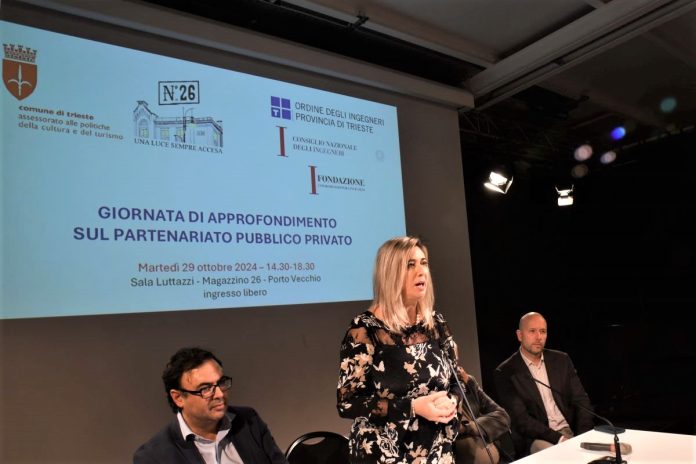by InTrieste
In a region known for its historic charm and picturesque waterfront, a forward-thinking conference on public-private partnerships brought a modern twist to the age-old Italian principle of collaboration. Regional Councillor for Infrastructure and Territory Cristina Amirante took to the podium in Trieste to underscore how these partnerships are emerging as a vital mechanism to fund infrastructure projects as Italy’s state-backed financial resources dwindle.
“This conference today fully aligns with the Region’s policies on public-private partnerships,” said Amirante, addressing an audience that included representatives from both government and private sectors. For the first time, the Region has introduced a dedicated funding line to encourage municipalities to engage in partnership-based projects.
“Looking to the future, partnerships represent an economically effective approach for implementing projects in the region,” Amirante continued, speaking to a topic growing in relevance across the European Union as countries wrestle with post-pandemic budgetary constraints. “This tool will become increasingly necessary, especially as the funds from Italy’s National Recovery and Resilience Plan (NRRP) will eventually run out, making public-private collaboration increasingly strategic.”
Among those present was Trieste’s Councillor for Financial Policies, Everest Bertoli, reflecting the city’s own interest in balancing regional ambitions with local needs. Trieste has long looked for sustainable ways to fund infrastructure projects and boost its economic growth.
Amirante pointed to the 2006 Winter Olympics in Turin as an example of what happens when public funding alone is relied upon. While substantial state funds were poured into new facilities, the long-term economic impact on Turin and the surrounding region was muted, she said. “A project funded exclusively by public resources often fails to fully generate the expected economic and social benefits,” she noted, emphasizing the importance of shared responsibility.
Italy, like many European countries, has historically depended on state-backed initiatives for large-scale public works, a system strained by increasingly limited funds. Public-private partnerships, or PPPs, offer a way to share both the financial risks and potential rewards between sectors, and the conference in Trieste underscored





























